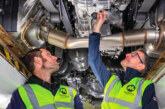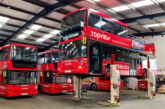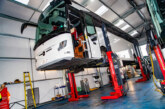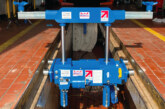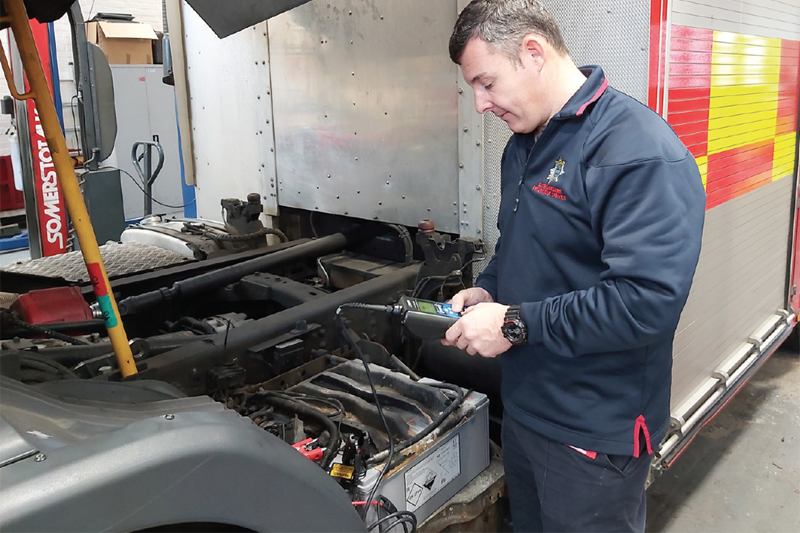
CVW has teamed up with Rotronics to help advise readers who are struggling to get their battery performance right and may be thinking of switching suppliers or battery type – it is not the simple answer that we thought it might be.
Getting the right battery for the right vehicle is critical. Looking after it in the right way to prolong its life and reduce unnecessary battery spend has never been more important. Rotronics has three steps to battery success: use the correct batteries for your application; put a maintenance programme in place to maintain your batteries; and check the quality of your batteries.
Ken Clark, Managing Director of Rotronics, comments: “We are frequently contacted by workshop teams considering whether to change their battery type and supplier or not. They want to know our views about different battery types and technologies. Generally, this is because of increased battery failures or roadside defects. We always ask them about how the batteries have been looked after from the start, especially with new vehicles.”
CVW has investigated what this means. It is important to understand the battery’s story from manufacture; from compound storage and body shop modifications through to delivery. The battery may not have received much focus from day one.
Ken Clark continues: “Vehicles are often jump started when ready to ship because the battery has been poorly treated from the get-go. Coachbuilders may not maintain the batteries and it could already be damaged on delivery.
“Without care and maintenance from the beginning, they won’t have the best start in life. Stored batteries off the shelf from your supplier may or may not have been properly looked after, and the installed battery already in your vehicle may or may not have either.”
Things to remember
First things first, on receipt of any new vehicle or battery into your workshop, you should always test the battery and confirm that the voltage meets the requirements. Batteries being received into stock should have a minimum voltage of 12.6V, with delivered vehicles having a minimum of 12.5V.
The batteries measured CCA (Cold Cranking Amps) should be within 10% or less of its rated value. If either of these elements are adverse, you can challenge the provider on their battery management, as this may affect your vehicle long-term.
It is good practice to reject any supplied batteries that fall below an Open Circuit Voltage of 12.6V. Once in stock, consider conducting periodic tests to make sure battery voltages of stored batteries remain healthy, charging them to guarantee they are ready for service.
These simple guidelines will ensure your batteries last longer and you will reduce the risk of premature failure. You will cut the risk of roadside non-starts and avoid roadside call-out charges, which can be between £350- £500 or more, depending on the time and location of the vehicle breakdown.
Cut non-starts by 75%
Ken Clark explains: “Our customers experience most improvement by keeping chargers and trolleys in every pit and by having a consistent Battery Management Programme, which we develop for them. They charge at every opportunity and they test the batteries at each planned maintenance inspection, usually every four to six weeks. These workshops have cut non-starts by up to 75% and have saved a lot of money.”
Rotronics develops a battery management programme for each customer which should include the following, in order to keep batteries at their best, maximise fault diagnosis, and increase productivity and customer service:
- Proactive battery inspection during routine inspections and at the point of service
- Identify imbalanced batteries and charge appropriately
- Identify and replace defective batteries
- ROBIS remotely collects data from each workshop to track and monitor a fleet’s battery performance
The Rotronics web-based dashboard is an industry-first and ideal for remote monitoring. It collects electrical and battery information from each national/regional workshop to update software and gain full visibility of the fleet battery performance. ROBIS analysis is used by major national commercial and fleet operators.
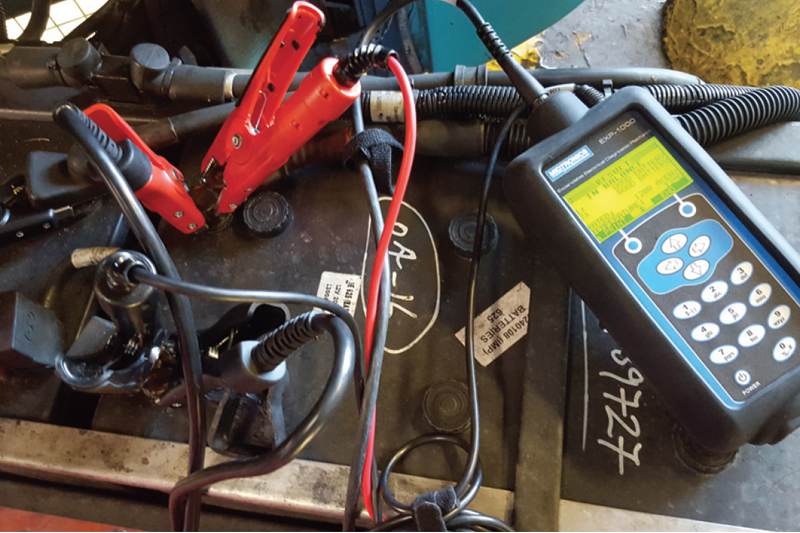
Correct application
It is important to know that you are using the correct batteries for the application. Being clear about the drive cycle of the vehicle is key. Will it be used for short or long journeys, with frequent drop offs and tail lift operations?
Are you using a quality battery – does it meet or exceed its rated specification? A common misconception is that the rated value of a battery is the maximum that it can achieve – it is actually the minimum. This needs to be monitored frequently and a battery management programme will check this over time, via the CCA.
The main battery types are standard flooded, maintenance-free, AGM, and EFB – all of which have different benefits and features. Each type has varying warranty options. Get a warranty that is relevant to you, thinking about how you will validate the warranty and get it to meet your needs. Suppliers are keen to have your business but keep a focus on your own needs and vehicle demands.
Ken Clark concludes: “Although there is much movement towards maintenance-free batteries, and in some case AGM (Absorbed Glass Mat Technology), this may not always be the best option for your fleet, depending on your usage and maintenance processes. You may benefit from traditional refillable lead acid batteries to minimise the risk of losing electrolytes through charging cycles.
“Only when you have a supporting maintenance programme with good battery quality, and your fleet batteries are still not performing, should you consider changing the battery type or supplier. The only way to judge is by monitoring the fleet battery performance over time, with facts and long-term data, using the Rotronics industry-leading platform. Otherwise, it’s guesswork. We can help you identify the correct battery and management system for you, based on facts.”


